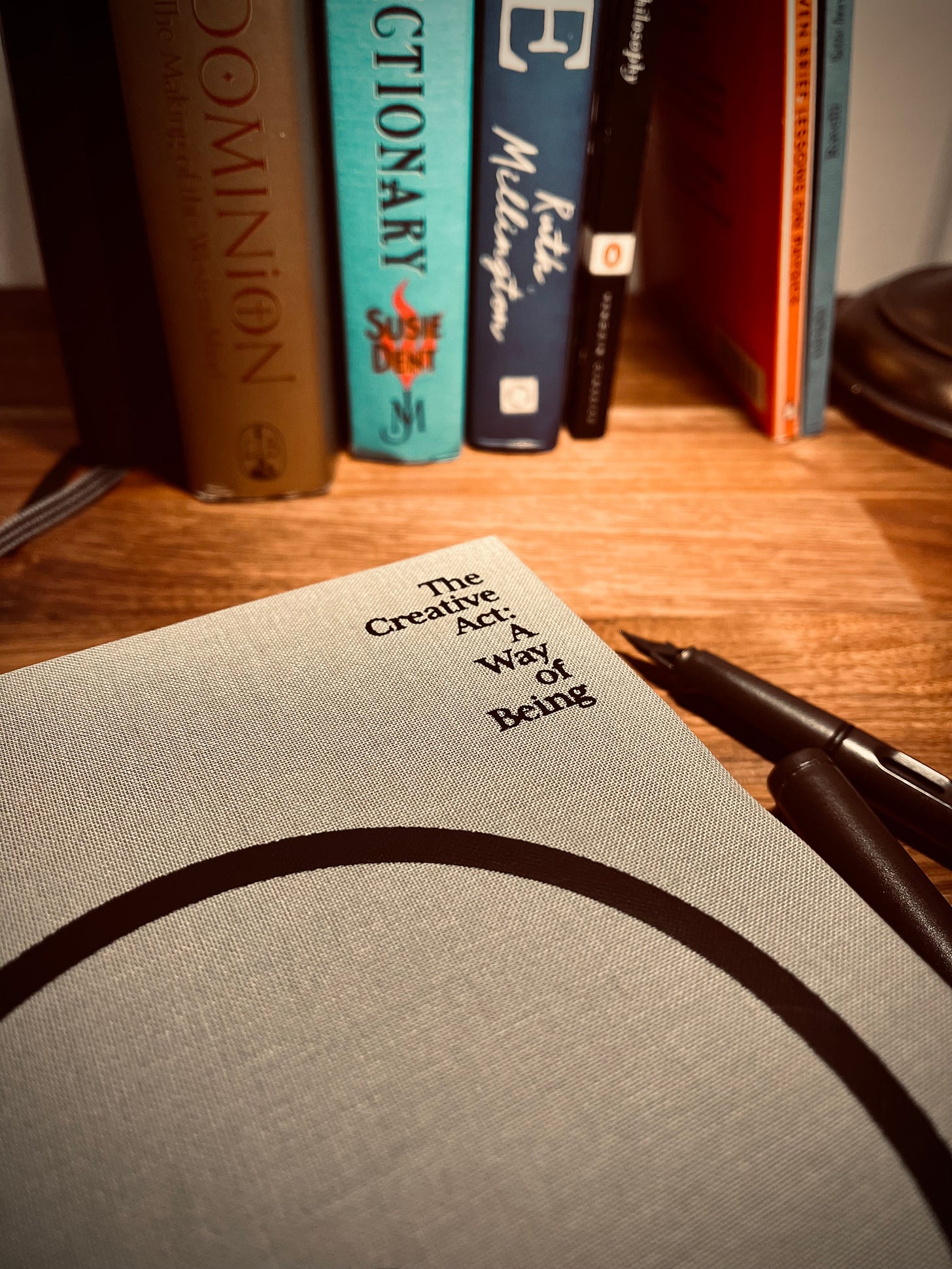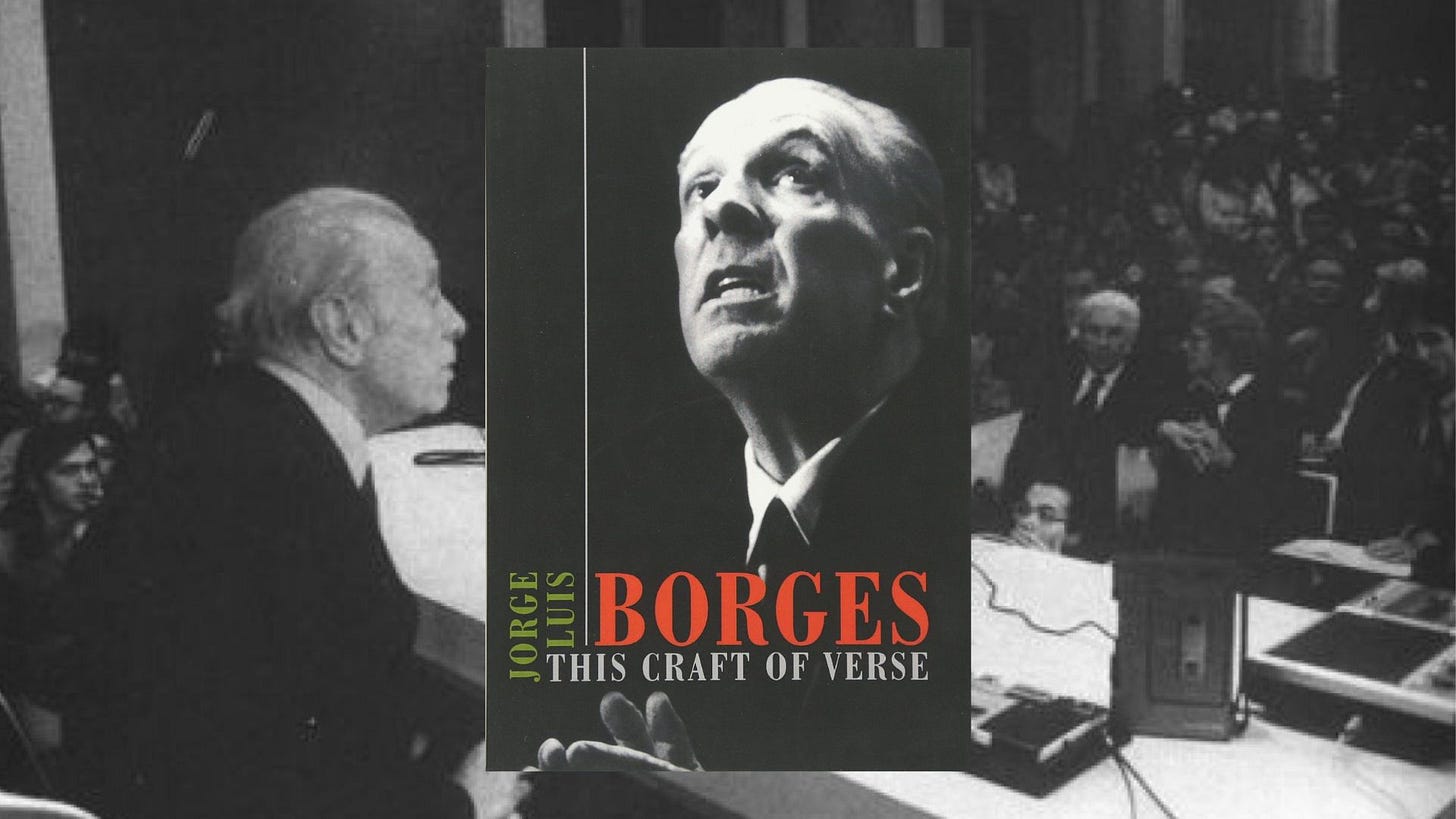Rick Rubin: 5 Mistakes Artists Make (and how to avoid them) | BOOK SUMMARY
'The Creative Act: A Way of Being' by Rick Rubin | Summary, quotes and advice on creative process.
The artist's goal is not merely to produce, but to make the finest work they are capable of.
The business thinks in terms of quarterly earnings and production schedules. The artist thinks in terms of timeless excellence.
~ Rick Rubin
🍂🍂🍂
Rick Rubin is one of the greatest music producers of our time. I am infinitely grateful to him for producing the favorite band of my teenage years - System of a Down. Being an Armenian schoolkid in Moscow was not easy (especially in the late 90s and early 2000s). System of a Down's songs made me feel empowered.
I enjoyed reading Rubin's book and would like to jump straight to his ideas. Each of them will have a quick annotation from me to give you a bit of context and explain why I found the idea inspiring.
🍂🍂🍂
I. Toxic Productivity Kills Creative Process
There are those who approach the opportunities of each day like crossing items off a to-do list instead of truly engaging and participating with all of themselves.
Our continual quest for efficiency discourages looking too deeply. The pressure to deliver doesn't grant us time to consider all possibilities. Yet it's through deliberate action and repetition that we gain deeper insight.
It's interesting how we adopted the lingo that some 18th century factory owners used in relation to their workers and started using it for ourselves. We should replace the word "productive" with the word "engaged" in our vocabularies. Instead of saying "I was productive today," we should say "I was engaged/focused today."
Life is not just a to-do list.
‘While crafting, make deadlines for your own motivation, not necessarily to be shared with others unless it helps with accountability.’
II. How Artists Should Set Rules For Themselves
[Rules] are there to be tested. And they are only of value as long as they are helpful. They are not laws of nature.
I'm talented at creating useless rules for myself. Once again, I blame the word "productivity." For example, I don't understand people who set "reading goals" for themselves. Only a non-reader could do this. It's stupid to set a rule for yourself to read 100 pages a day so that you can finish Shakespeare's Hamlet quickly. Okay, so you read it in a day or two. Congratulations, you've earned the badge of being a productivity idiot.
It's better to create rules that will help you gain more insight and focus. A cliché example of one of my rules is that if I sit down to read a book, I put my phone on silent and place it far away from me. The aim of this is not to read more books quickly but to be more focused on the book I'm reading.
III. No Art is Possible Without Constraints
When there are no material, time, and budget constraints, you have unlimited options. When you accept limitations, your range of choices is reduced. Whether imposed by design or by necessity, it's helpful to see limitations as opportunities.
Limits can show how much space is there for us to expand. Try setting some limits to yourself, especially when you’re experiencing a creative block. For example, many people want to keep a journal, but don’t know what to write in it. The reason is not in the lack of material, but in the abundance of it. My advice is to set limits and write about a particular subject only. It can be films, friends, books, locations. Once you have a focus you will know in which direction to expand.
If the work doesn't represent who you are and what you're living, how can it hold an energetic charge?
IV. Don’t Aim at Creating Great Art.
Yet an album is only a diary entry of a moment of time, a snapshot reflection of who the artist is for that period. And no one diary entry is our life story. Our life's work is far greater than any individual container. The works we do are at most chapters.
There will always be a new chapter, and another after that. Though some might be better than others, that is not our concern. Our objective is to be free to close one chapter and move on to the next, and to continue that process for as long as it pleases us.
My favourite piece of advice from Rubin is to treat my videos, newsletters, and podcasts as journal entries, documenting what I care about and connect with at the moment.
For years, I put off writing or creating things because I wanted them to be perfect, but as time went on, I lost connection with what I truly cared about. The great German poet Goethe thought the same and wrote about this 150 years ago. I wrote about it here.
‘It's dispiriting to complete and share a work you've lost connection with.’
V. Rubin’s Rules of Experimentation
The only way to truly know if any idea works is to test it. And if you're looking for the best idea, test everything.
Ask yourself as many "what if" questions as you can.
What if this were the first painting anyone saw in their life? What if I removed every adverb? What if I made all the loud parts quiet? Look for different polarities and see how they affect the piece.
This idea is strongly tied with what we discussed in the second point of this newsletter. Don’t forget that one as I once did. :)
Great art is created through freedom of self-expression and received with freedom of individual interpretation. Great art opens a conversation. rather than closing it. And often this conversation is started by accident.
VI. Art Requires Discipline
Discipline is not a lack of freedom, it is a harmonious relationship with time. Managing your schedule and daily habits well is a necessary component to free up the practical and creative capacity to make great art.
Impatience happens when we’ve an argument with our nature. We’ve to be in harmony with our talents and creative processes. It’s difficult because to be in harmony we need to find the golden middle. We cannot be too late with our creations otherwise we lose touch and move on (as it was mentioned in point 4), but we also shouldn’t be in a rush.
I’m trying to sense this balance and build a harmony. It involves a lot of self-learning.
‘Without diligence, inspiration alone rarely yields work of much consequence.’
VII. Competition in Art is Absurd.
Art is about the maker. Its aim: to be an expression of who we are. This makes competition absurd.
Think of your favourite writer, film-director, musician or painter? Why do you admire them? I'll be immodest and reply to this question for you. My response would be it’s because they provide you with their own individual, idiosyncratic, distinctive way of looking at the world.
You and I can review Rubin’s book, but our reviews will differ, because you and I look at the world differently. We are not factory workers who try to create the same lightbulb over and over again. If we aim to be artists we have to be distinct, idiosyncratic and unique. Let’s leave competition to the business world. The world of art is based on collaboration, not competition.
VIII. The Intensity of Your Experiences are Defined by the Quality of Your Attention
So often we sleepwalk through our lives. Consider how different your experience of the world might be if you engaged in every activity with the attention you might give to landing a plane.
As the Italian poet and polymath Leopardi wrote in his Zibaldone: ‘The attention you choose to pay to this world will define what life you will lead.’
IX. Uncorrupted Vision
Artists who are able to continually create great works throughout their lives often manage to preserve these childlike qualities. Practicing a way of being that allows you to see the world through uncorrupted, innocent eyes can free you to act in concert with the universe's timetable.
Nabokov has an essay called ‘On the Wretchedness of Soviet Fiction’. I chuckled a lot whilst I read it. It’s written in Nabokov’s blunt and direct style and it mocks Soviet political writers and their cliché stories. In this essay N. tells his reader how political ideology - in this case communism - corrupts writer’s authenticity completely. A story written through a political feels the same, reads the same, sounds the same because while art is broadens one mind, politics always narrows it.
X. Never Forget About the ‘Essence’ of What You Create
All the work we do, no matter how intricate, holds an underlying essence. A core identity or fundamental structure, like a skeleton supporting flesh. Some might call it an "is-ness."
‘Like a skeleton supporting flesh’ - this metaphor is so visual and so precise. Every work must have an essence to it, if it doesn’t the audience will feel cheated. To understand what makes the essence of your work try asking ‘what if’ questions as described in the rule number 5.
Let’s say you’re writing an essay. Ask yourself what would happen if you remove this or that paragraph, or, this or that adjective. Would the meaning of your work change for the better or for worse? Would that sentence lose its meaning if you removed that adjective?
Ultimately, your desire to create must be greater than your fear of it.
Coming soon on Genius & Ink…
Summary and quotes from Jorge Luis Borges’s lectures on writing!
Writing is nothing more than a guided dream.







Thank you Vashik ✍️